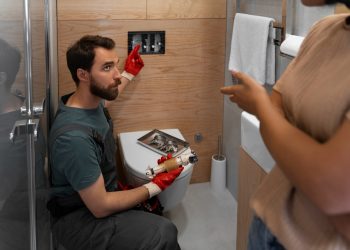In the ever-evolving landscape of healthcare, staying informed and making data-driven decisions is crucial for success. Market research plays a pivotal role in helping healthcare organizations, pharmaceutical companies, medical device manufacturers, and healthcare professionals make informed choices that benefit patients, providers, and the industry as a whole. In this comprehensive guide, we will explore the importance of market research in healthcare, its various applications, and the benefits it offers.
Understanding Healthcare Market Research
Healthcare market research is the process of gathering, analyzing, and interpreting data related to the healthcare industry. It encompasses a wide range of activities, including studying patient demographics, assessing market trends, analyzing competitors, evaluating healthcare technologies, and understanding the regulatory environment. The goal of healthcare market research is to provide valuable insights that inform decision-making and drive strategic planning.
Key Applications of Market Research in Healthcare
1. Understanding Patient Needs and Preferences
One of the primary applications of healthcare market research is gaining a deep understanding of patient needs and preferences. By conducting surveys, focus groups, and interviews, healthcare organizations can gather feedback from patients about their healthcare experiences, expectations, and challenges. This information helps in tailoring services and improving patient satisfaction.
2. Market Segmentation
Market segmentation is crucial for healthcare organizations and pharmaceutical companies. Market research helps identify distinct patient groups based on demographics, medical conditions, behaviors, and preferences. Segmenting the market allows organizations to develop targeted marketing strategies and deliver personalized healthcare solutions.
3. Competitive Analysis
Healthcare is a competitive industry, and staying ahead of the competition requires a thorough understanding of competitors’ strengths, weaknesses, and strategies. Market research enables organizations to analyze the competitive landscape, identify market gaps, and make informed decisions about product development and marketing strategies.
4. Product Development and Innovation
For pharmaceutical companies and medical device manufacturers, market research is essential for product development and innovation. Research helps identify unmet medical needs, assess market demand, and gauge the potential success of new products or treatments. It also guides decisions on pricing, packaging, and regulatory compliance.
5. Healthcare Trends and Forecasting
Market research helps healthcare organizations stay up-to-date with industry trends and forecast future developments. This includes tracking changes in healthcare regulations, technology advancements, and emerging treatment modalities. Staying informed about these trends allows organizations to adapt and evolve proactively.
6. Healthcare Policy and Regulation
Understanding the regulatory environment is crucial in healthcare. Market research helps healthcare providers and organizations stay compliant with evolving regulations and policy changes. It also aids in navigating reimbursement systems and understanding how policy changes may impact healthcare delivery.
The Benefits of Market Research in Healthcare
1. Informed Decision-Making
Perhaps the most significant benefit of healthcare market research is its ability to inform decision-making. Whether it’s selecting the right treatment approach, launching a new healthcare product, or expanding services to a specific demographic, data-backed decisions are more likely to lead to successful outcomes.
2. Improved Patient Care
By understanding patient needs and preferences, healthcare providers can improve the quality of patient care. Market research helps identify areas for improvement, enhances communication between patients and providers, and leads to more patient-centered care.
3. Competitive Advantage
Healthcare organizations that invest in market research gain a competitive advantage. They can anticipate market changes, respond to emerging trends, and stay ahead of competitors. This advantage can be particularly crucial in a rapidly evolving industry like healthcare.
4. Cost-Efficiency
Market research can help healthcare organizations allocate resources more efficiently. By targeting the right patient populations and focusing on the most promising areas of growth, organizations can reduce unnecessary costs and improve their financial sustainability.
5. Product Development Success
For pharmaceutical and medical device companies, market research can significantly impact the success of new product launches. Understanding market demand, patient preferences, and competitive landscapes ensures that resources are invested in products with the greatest potential for success.
6. Regulatory Compliance
In a highly regulated industry like healthcare, staying compliant with changing regulations is paramount. Market research helps organizations stay aware of regulatory changes and adapt their operations accordingly, reducing the risk of non-compliance.
Challenges in Healthcare Market Research
While healthcare market research offers numerous benefits, it comes with its own set of challenges. Some of these challenges include:
1. Data Privacy and Security
Dealing with patient data and sensitive healthcare information requires strict adherence to data privacy regulations like HIPAA (Health Insurance Portability and Accountability Act). Healthcare organizations must ensure data security and compliance when conducting market research.
2. Complex Regulations
Navigating healthcare regulations and policies can be complex and time-consuming. Researchers must be well-versed in healthcare laws to conduct ethical and compliant research.
3. Sample Bias
Obtaining a representative sample of patients or healthcare professionals for research can be challenging. Bias in sample selection can lead to inaccurate conclusions.
4. Rapid Technological Advances
The rapid pace of technological advancements in healthcare means that market research must keep up with ever-changing tools, treatments, and technologies.
Conclusion
In conclusion, healthcare market research is a vital component of the healthcare industry. It empowers healthcare organizations, pharmaceutical companies, and medical device manufacturers to make informed decisions, improve patient care, gain a competitive edge, and adapt to a rapidly evolving landscape. While it comes with its unique challenges, the benefits of healthcare market research far outweigh the drawbacks, making it an indispensable tool in the pursuit of better healthcare outcomes.









